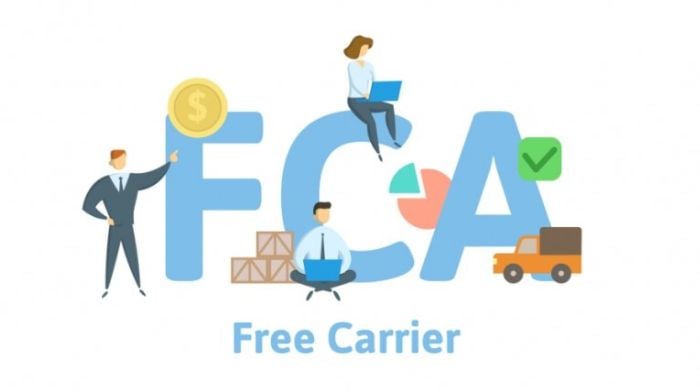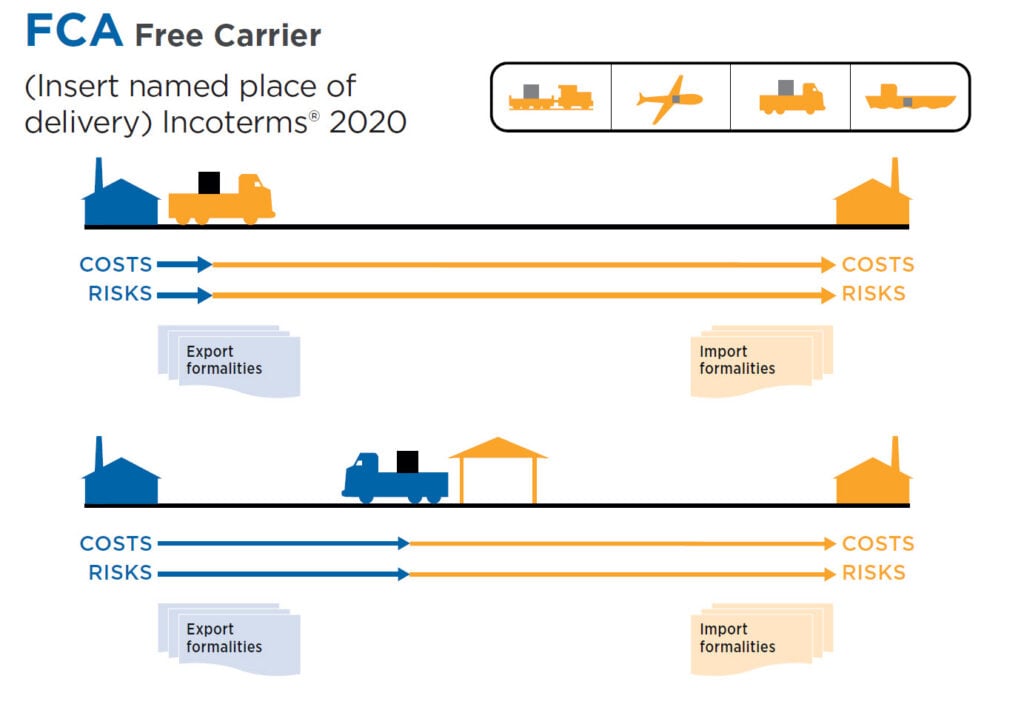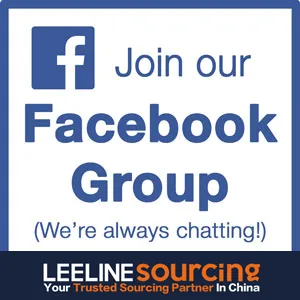FCA, or Free Carrier, can be complicated for first-time buyers. If you’re thinking of choosing this shipment term, you should know what FCA is in detail and whether or not you are suited for it first.
We’ve been in the transportation business that accommodates air, land, and sea transport for more than ten years. So, we know the ins and outs of all the trade terms, including FCA incoterm. This article will help you decide whether FCA is the proper trade term for your shipment needs.
Read along to know what FCA means, when you should use it, and its risks.

What is FCA incoterms?
FCA meaning Free Carrier is an incoterm where the shipper assumes responsibility until a specified destination. After the transportation point, the buyer assumes responsibility for the transportation and terminal charges. This incoterm is flexible. The agreed location can be at the port, airport, consolidation center, or some other terminal.
In the FCA sales contract, the risks of delivery transfer from the supplier to the buyer are early compared to most of the incoterms recognized by the International Chamber of Commerce.
When to use FCA incoterms?
You can use FCA incoterms in the domestic and international trade shipping process. You should use it if:
- You’re comfortable with arranging local transport in the seller’s country.
- You know how to contact a freight forwarder, and you can conduct credit payments for freight costs.
- You can get a first carrier responsible for loading your cargo at the shipping terminal.

What are the Buyers and Sellers’ Responsibilities with FCA incoterms?
Seller’s Responsibilities:
- Export and documentation tasks: Export clearance in the export country is the only document the seller is responsible for in FCA shipping terms.
- Pre carriage: Seller arranges pre-carriage delivery from the seller’s depot to the agreed port.
- Pre-shipment inspection: The supplier is responsible for adequately doing the export packaging and ensuring that the cargo doesn’t have any damage.
Buyer’s Responsibilities:
- Contracting the first carriage: The buyer is responsible for contracting carriers like a shipping line airline.
- Risks after the FCA destination: The buyer is responsible for everything after the goods arrive at the said place, usually the terminal or the supplier’s factory.
- Most documentation and insurance papers: The buyer arranges most of the needed documentation except the export formalities in the seller’s home country.
- Duties and taxes: The buyer assumes responsibility for paying the import duty and other taxes in their country.

Pros and Cons of FCA incoterms
Advantages:
Compared to EWX, which puts the buyer in a worse position than the supplier, FCA is better for inexperienced buyers. In FCA, the seller remains liable until the other vehicle arrives in the designated place and the merchandise transfers to it. The delivery needs to come to the agreed destination of both parties. As this place can be a terminal or transport hub that ships directly to a buyer’s country, there’s less responsibility for the buyer than EWX.
It is also sometimes advantageous for the client to load the cargo to the designated vessel at their own expense. This way, the supplier can’t add a margin on top of the original cost of loading the cargo.
Lastly, FCA is available for international and domestic transactions, unlike other trade terms. It is also available for all modes of transport and not just for sea freight. Knowing this shipping term is an advantage. You can conduct international and domestic transactions using every transport mode available once you master it.
Disadvantages:
For totally inexperienced buyers, this incoterm might still be too demanding. Compared to most trade terms with a later liability transfer, the buyer gets more responsibility in FCA. The seller’s obligations end at the agreed place. So, that means that the buyer must contact and pay for all the transportation modes involved after the cargo arrives.
It can be confusing as international carriers sometimes use more than one carrier during transportation. And not only that, but it can also cost the buyer more money if they don’t know what they’re doing.
In shipping terms that require the buyer to pay and communicate with the sea freight forwarders, every cost associated with delays and penalties will fall to the buyer. Buyers shoulder most risks in FCA. If you don’t know how to do FCA, you might spend more money than you intended. And this is a significant disadvantage for inexperienced buyers.
Looking for the Best China Sourcing Agent?
Leeline Sourcing helps you find factories, get competitive prices, follow up production, ensure quality and deliver products to the door.
FCA incoterms Risks
The risks in FCA transfer from the suppliers to the buyers once the cargo is loaded at the destination. If there was damage to the shipment before that point, the supplier shoulders the risks. If there’s damage after the buyer’s transport, the buyer will have to pay for the damages.
Most of the risks in FCA fall on the buyer.
The risk transfers early on, so buyers have to ensure that they can manage the risks involved. So, it’s generally not recommended for inexperienced buyers to choose this shipping term.

Example of FCA incoterms
For example, a buyer from the United States chooses a shipper he knows in Shanghai. The supplier in Shanghai agrees to the FCA destination. It is now the supplier’s responsibility to safely deliver the cargo to the buyer’s shipper. After the delivery, the supplier is free from any responsibilities and risks associated with the cargo.
The destination doesn’t necessarily need to be at a shipper’s warehouse. It could be at a seaport or even an airport. Once the supplier brings the cargo to the port, all the responsibilities and risks will transfer to the buyer.
Suggested reading: Alibaba DDP Shipping
FAQs about FCA
1. Who pays freight with an FCA incoterm agreement?
In FCA, the buyer pays for freight expenses. The supplier only pays for export documents and the delivery costs of bringing the cargo to the designated location.
2. What is the difference between FCA and FOB?
The important difference between FCA and FOB is that in FOB, the supplier handles the loading costs of the vessel. But in FCA incoterms, the liability passes earlier, when the cargo arrives at the warehouse or consolidation center. So, the buyer pays for the loading costs, not the Free Carrier supplier.
3. Where can I learn about other types of Incoterms?
You can learn more about the other types of incoterms on Leelinesourcing. Just type the incoterms you want to know more about in the search bar on the upper right of our page.
4. How does Free Carrier (FCA) Works?
In FCA, suppliers pack and prepare the export documents of a cargo. Then, they will deliver it to a designated place chosen by the buyer. Once the load is delivered, the buyers become responsible for the other shipment process, costs, risks, and responsibilities.
What’s Next
In FCA incoterm, the responsibilities switch to the buyers early. So, if you’re unsure of whether or not you can handle the risks and costs of contacting shippers, freight forwarders, and documentation, it might be best to use other trade terms like FOB or CIF instead.
Leelinesourcing has helped thousands of clients choose which trade terms to use. If you also want us to help you receive your cargo safely and with minimal costs, don’t hesitate to contact us.








